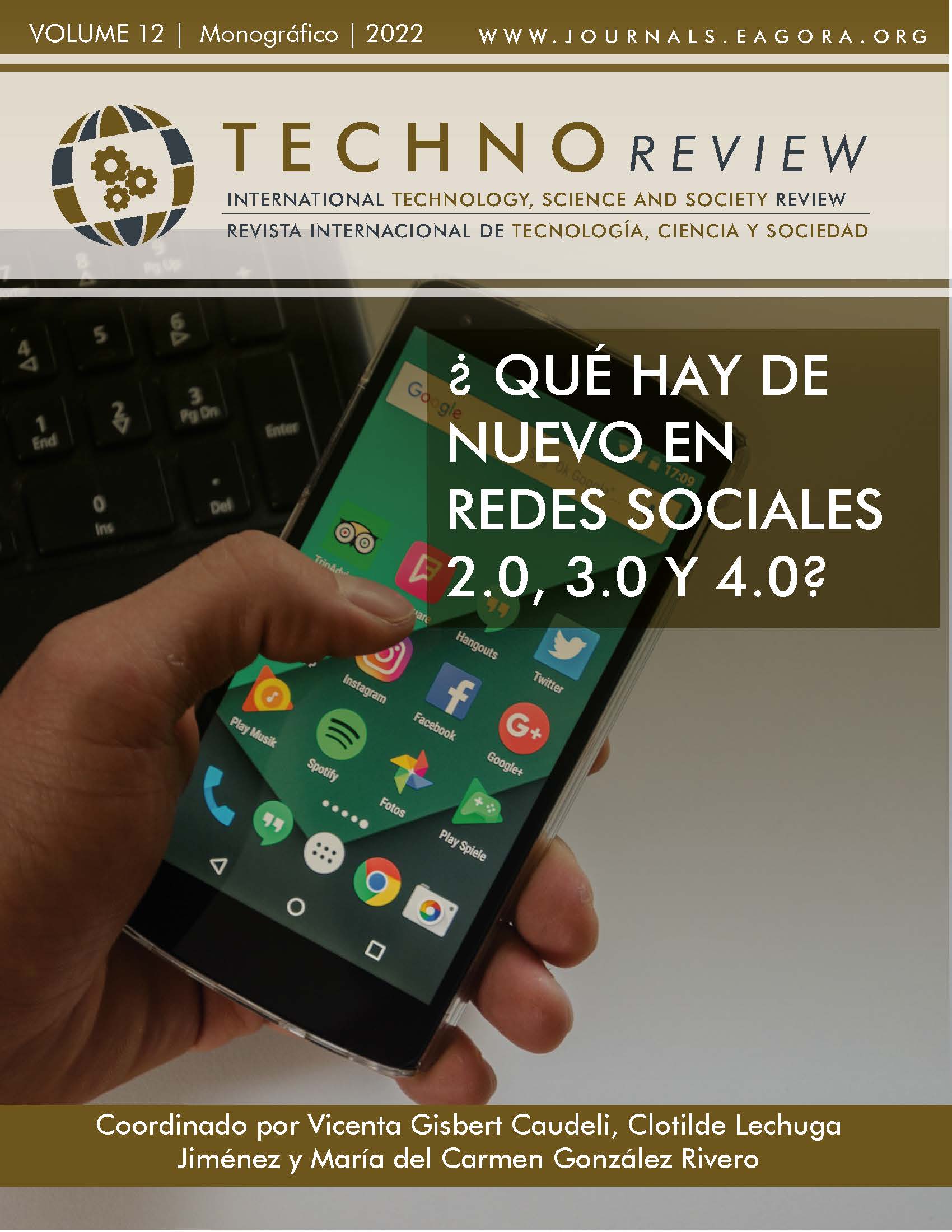Análisis de las competencias claves para la industria 4.0
Las competencias para la Industria 4.0.
DOI:
https://doi.org/10.37467/revtechno.v11.4392Keywords:
Industry 4.0., Competences, Transformation, Digital, Workplace, Training, TechnologyAbstract
The main aim of this research is on the one hand to analyse the skills required for the current context of the Fourth Industrial Revolution; and, on the other hand, to examine the strategies used for the development of competences to adapt companies to Industry 4.0. The study sample consisted of 440 managers from a variety of sectors of economic activity. A questionnaire on Industry 4.0 competences was administered. The results show that there are several relevant competences that contribute to the development of Industry 4.0, particularly specific or technical competences, transversal competences, and personal or psychological skills.
References
AENOR (2003). Informe UNE 66173 IN: Los recursos humanos en un sistema de gestión de la calidad Gestión de las competencias. AENOR.
Alhayani, B., Kwekha-Rashid, A.S., Mahajan, H.B., Uke, N., Alkhayyat, A., & Mohammed, H. (2022). 5G standards for the Industry 4.0 enabled communication systems using artificial intelligence: perspective of smart healthcare system. Applied Nanoscience, 1-11. https://doi.org/10.1007/s13204-021-02152-4
Andreu, M. (2022). Gamificación a través de Kahoot en el ámbito de las ciencias jurídicas: experiencia y conclusiones. In D.Kahale (ed.). Educación 4.0: Cuestiones actuales sobre la docencia universitaria (pp. 19-33). Ediciones Laborum.
Álvarez, E., Gómez, J., & Ratto, P. (2004). Competencias requeridas por el mercado laboral chileno y las competencias actuales de estudiantes de Psicología con orientación laboral/organizacional, en una universidad privada, PHAROS Arte, Ciencia y Cultura, 11(1), 113-133.
Azah Mansor, N., Abdullah, N., & Abd Rahman, H. (2020). Towards electronic learning features in education 4.0 environment: literature study. Indonesian Journal of Electrical Engineering and Computer Science, 19 (1), 442-450.
Azmi, A. N., Kamin, y., Noordin, M. K., & Nasir, A. N. M. (2018). Towards industrial revolution 4.0: employers’ expectations on fresh engineering graduates. International Journal of Engineering & Technology, 7(4.28), 267-272.
Bondar, K. (2018). Challenges and Opportunities of Industry 4.0 – Spanish Experience. International Journal of Innovation, Management and Technology, 9 (5), 202 - 208.
Buenrostro, E. (2022). Propuesta de adopción de tecnologías asociadas a la industria 4.0 en las pymes mexicanas.
Entreciencias 10(24), 1-19. http://revistas.unam.mx/index.php/entreciencias
Caratozzolo, P., Alvarez-Delgado, A., Gonzalez-Pineda, Z, Sirkis, G., & Piloto, C. (2021). Desarrollo de Competencias Blandas en Ingeniería en el Marco de la Educación 4.0. 19th LACCEI International Multi-Conference for Engineering, Education, and Technology: “Prospective and trends in technology and skills for sustainable social development” “Leveraging emerging technologies to construct the future”, Buenos Aires -Argentina, July 21-23.
Castellanos, P. & Escott, M.P. (2020). Evolución de las habilidades laborales en la industria 4.0 y su impacto financiero. Revista Innova ITFIP, 6(1), 106-119.
Comisión Europea (1995). El libro blanco “Enseñar y aprender: hacia la sociedad del conocimiento. Oficina de Publicaciones Oficiales de las Comunidades Europeas.
Corrales, J., Ribeiro, N., & Roque, D. (2022). Las competencias exigidas a los trabajadores de la Industria 4.0.: Cambios en la gestión de personas. Cuadernos de Relaciones Laborales 40(1), 161-184 https://doi. org/10.5209/crla.72383
European Commission (2021). Decision of the European Parliament and of the Council establishing the 2030 Policy Programme “Path to the Digital Decade”. European Commission. https://bit.ly/3OkAt0E
European Investment Bank (2022). Digitalisation in Europe 2021-2022: Evidence from the EIB Investment Survey.
European Investment Bank.
Fitsilis, P., Tsoutsa, P., & Gerogiannis, V. (2018). Industry 4.0: required personnel competences. International Scientific Journal Industry 4.0, 3(3), 130-133.
Khin, S. & Kee, D.M.H. (2022). Factors influencing Industry 4.0 adoption. Journal of Manufacturing Technology Management, 33(3), 448-467. https://doi.org/10.1108/JMTM-03-2021-0111
Leinweber, S, (2013). Etapa 3: gestión por competencias. En M.T. Meifert (Ed.). Desarrollo de personal estratégico-un programa en ocho etapas. 3ª ed., (pp. 145-178). Springer Fachmedien, Wiesbaden.
Lepore, D., Dubbini, S., Micozzi, A. & Spigarelli, F. (2022). Knowledge Sharing Opportunities for Industry 4.0 Firms.
Journal of the Knowledge Economy, 13, 501–520. https://doi.org/10.1007/s13132-021-00750-9 Mababu, R. (2017). La transformación digital y el emprendimiento de los jóvenes en Iberoamérica. Revista internacional y comparada de relaciones laborales y derecho del empleo, 5 (2), 1 - 18.
McClelland, D.C. (1973). Testing for competences rather than for intelligence. American Psychologist, 28, 1-14.
OECD (2018). Organisation for Economic Co-operation and Development. Teaching for the future: Effective classroom practices to transform education. OECD Publishing. https://doi.org/10.1787/9789264293243-en
Spencer, L.M. & Spencer, S.M. (1993). Competence at Work. New York: John Wiley and Sons.
World Economic Forum (2020). The Future of Jobs Report 2020. World Economic Forum. http://www3.weforum.org/docs/WEF_Future_of_Jobs_2020.pdf
Downloads
Published
How to Cite
Issue
Section
License
Those authors who publish in this journal accept the following terms:
- Authors will keep the moral right of the work and they will transfer the commercial rights.
- After 1 year from publication, the work shall thereafter be open access online on our website, but will retain copyright.
- In the event that the authors wish to assign an Creative Commons (CC) license, they may request it by writing to publishing@eagora.org







